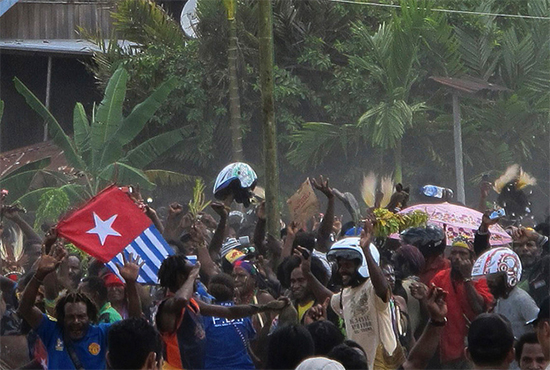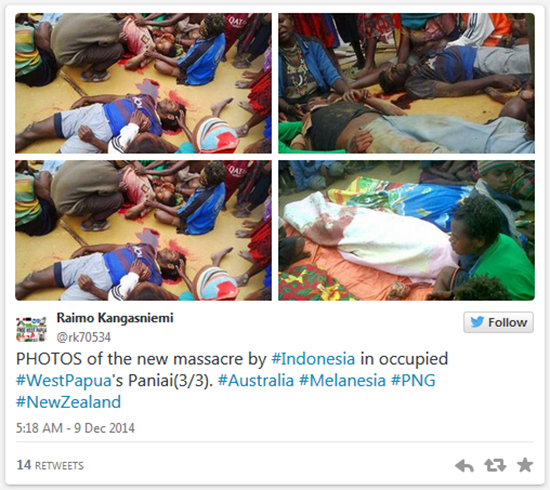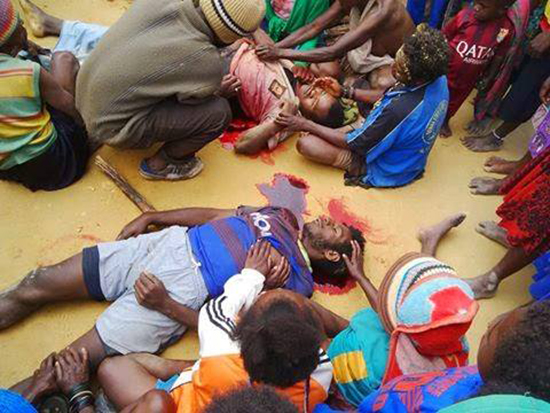
Scott Mitchell reports
Indonesian troops have opened fire in West Papua and killed five civilians during protests, as Indonesia faces growing pressure over its occupation of the Melanesian region.
The exact events that led to the deaths on Monday are difficult to trace, especially given media censorship and inconsistent reporting inside West Papua.
It has been established that the shootings occurred in Paniai regency, where locals gathered to demonstrate at Karel Gobay Square. At least five people were reported dead, with at least 12 wounded.
Local media quoted community leaders claiming that the unrest was provoked by the beating of a 12-year-old boy on Sunday night, while military spokesperson Rikas Hidayatullah claimed it was a political demonstration against the Electoral Commission.
The crowd “ran amok,” according to Hidayatullah, who added that the incident happened after the “police asked the military to help them”.
Activists for West Papuan independence began circulating a number of horrific pictures, that they claimed were taken at the scene of the shootings, on blogs and Twitter.
Indonesia occupied West Papua by force in 1963, following a colonial Dutch government.
Banned flag
Ever since, the national Morning Star flag of West Papua has been banned and independence supporters have been suppressed.
An estimated 100,000 West Papuans have died as a result of the occupation.
West Papua is a valuable strategic asset for Indonesia. It is home to the world’s largest known deposit of gold at Grasberg Mine, and is also a major palm oil producer.
Indonesia argues it secured the province fairly after a vacuum of internal leadership left the country completely ungoverned with no central authority.
The UN did grant Indonesia control of West Papua in 1963, on the condition that a plebiscite on self-determination was held within six years.
In 1969, Indonesia organised a vote that surveyed 1026 handpicked West Papuans. They voted to join Indonesia, and the other 800,000 West Papuans — who were considered “too primitive” and not consulted — were forced to go along with it.
Unified negotiations
News broke of Monday’s tragic shooting in Paniai just as West Papuan independence activist organisations announced they had unified after negotiations in Vanuatu.
The new body, called the United Liberation Movement for West Papua, has been set up with the ambition of being recognised by the Melanesian Spearhead Group, an intergovernmental organisation that advances the interests of the Melanesian peoples of the Pacific.
Scott Mitchell is a contributor to Vice News.
Journalists face jail for reporting on Indonesia’s separatist rebels
The struggle for ‘truth’ and the NZ media myopic over West Papua






